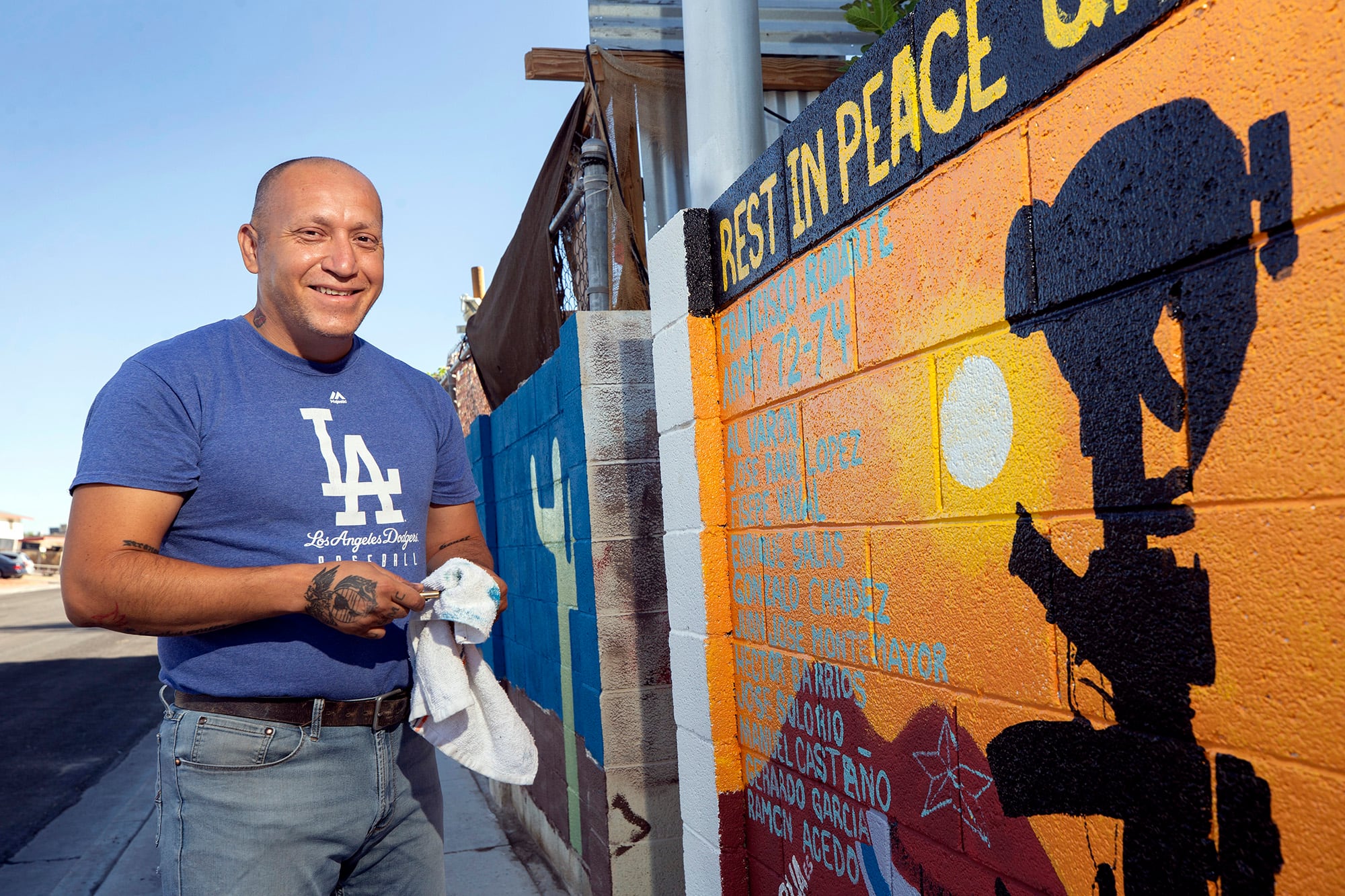Hector Ocegueda-Rivera wanted to head to an interview in Los Angeles with immigration officers so he could become a U.S. citizen — but since he was deported to Mexico, he couldn’t get back in the country to do so.
Now, the 53-year-old U.S. Marine Corps veteran who was deported after a conviction for driving under the influence is suing to demand the U.S. government let him in to attend the interview or send an immigration officer to the border to speak with him so he can meet the requirements of becoming an American.
“It’s absurd that we have to sue them but it is the only way to get them to do it,” said Talia Inlender, a supervising senior staff attorney at Public Counsel and one of his lawyers.
RELATED

U.S. Immigration and Customs Enforcement said it would not comment on pending litigation.
The issue arose after Ocegueda-Rivera learned he could apply to become an American citizen on account of his military service after he was already deported from the United States. One of the requirements for naturalization is undergoing an interview with U.S. immigration officers but he can’t get into the country to do it.
Under U.S. law, veterans who serve honorably during a period of hostilities are eligible to become American citizens if they meet a series of requirements, including undergoing the interview.
In some cases, U.S. veterans were deported after committing crimes. For example, a former Army paratrooper who founded a deported veterans support group in the Mexican border city of Tijuana later naturalized after he was given a pardon for a prior conviction. In another case, a veteran who traveled overseas was barred from returning to the United States because he didn’t know he had an old deportation order on his record, Inlender said.
The suit filed in federal court in California on Monday comes a little more than a week after the Biden administration issued policy guidance detailing how veterans outside the United States can seek to naturalize. The guidance says interviews for non-current members of the military must take place in the United States — with veterans seeking visas or parole to enter the country — or officials can conduct these interviews on the border.
Inlender said her client applied for a visa and parole to attend his interview and was denied both.
Ocegueda-Rivera was brought to the United States from Mexico by his parents and grew up in the Southern California community of Artesia, his sister said.
He served in the Marine Corps from 1987 to 1991 and spent another four years in the reserves before he was honorably discharged. During this time, he got married and had two daughters and got a green card through his wife. But he also had a drug problem and racked up a series of related convictions including driving under the influence, which prompted U.S. immigration officials to deport him in 2000, his lawyers said in court filings.
Ocegueda-Rivera returned to be with family, despite the deportation order, and he participated in a drug treatment program through a local veterans hospital. He was deported twice and has been living since 2012 in Mexico, where he connected with the veterans support group, the filings said.
In 2019, he applied to naturalize and was scheduled for an interview in Los Angeles in February 2020. Once he was denied permission to enter the country, he asked for U.S. immigration officials to schedule him for a border interview but they haven’t, the filings said.
Ocegueda-Rivera declined to be interviewed for this story. His sister, Alma Ocegueda, said she drives down to visit him twice a month in Mexico, bringing him groceries and his favorite fast food burger. He’s been working as a hotel security guard and wants to go back to school in nursing in the United States and spend time with family, she said.
“This is the only place that we’ve grown,” she said. “This is home for him.”




